
Case Study: PennSTART

The transition from High School to College can be a difficult and confusing time. Most of the incoming students are very stressed by the idea of balancing all of their new independence with the demands of college. At the Wharton School, The Undergraduate Division is a key resource for students making this transition. They have been helping students make informed decisions about their educational plans and professional and life goals that are consistent with their interests, abilities, and values.
However, most of this support necessarily occurs after the students arrive on campus.
After a lengthy set of initial meetings to learn as much as possible about being a college freshman, my team & I set to work researching interface possibilities that aligned with the desired pedagogy & go to work designing a simulation interface and user experience. We proposed that the simulation mimic the first semester at Wharton, so the simulation was designed to help students experiment with different activities, practice time management, employ strategies to deal with challenges and adversity, and reflect on their strengths. The design needed to be engaging and playful, but still convey the importance of the decisions in the simulation.
The simulation was divided into rounds, we decided to start each with a survey that would set the tone of the round. The students would be faced with a string of decisions that would mimic their day. Initially, these decisions were designed to be simple. “Do you study or go to your friends room?” but as the game progresses, the players must work hard to maintain their health, friendships, as well as their grades. In addition, randomly throughout the simulation, students are faced with additional challenges. These “exogenous events” require students’ input on everything from responding to a friend reaching out for support, to learning about a poor grade on a test, to deciding whether to spend the weekend camping with friends rather than attending to other commitments.
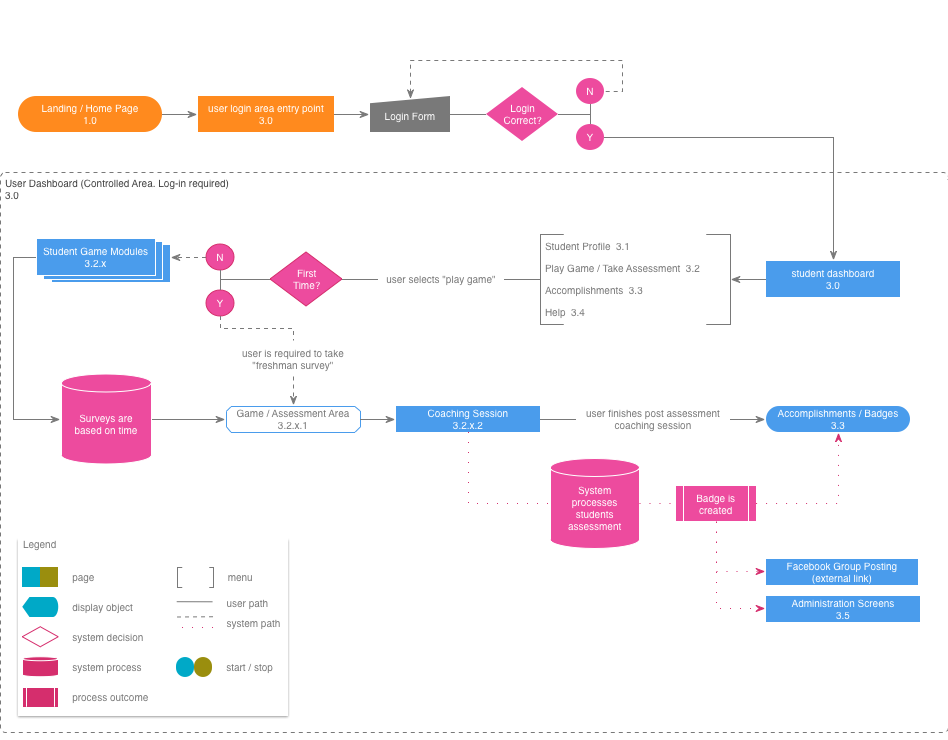
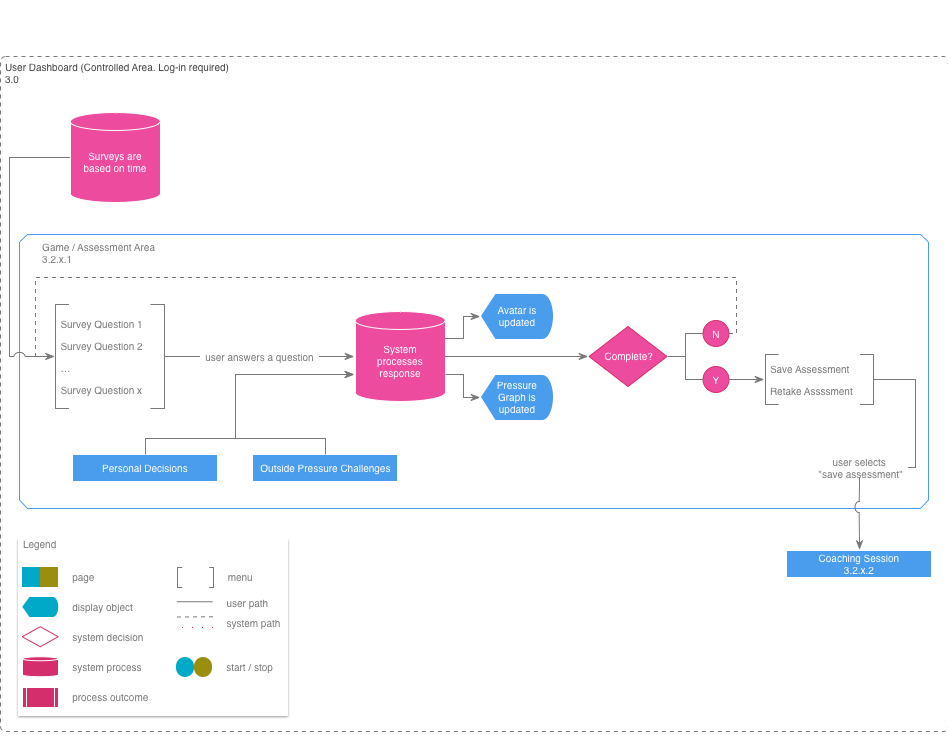
I created the idea of a “personal balances” tracker for the student UI. It allows them to see how much time they are spending on classwork, recreation, social settings, sleep, and personal time. Additionally, “personal metrics” track grades, confidence, friendships, school preparedness, and parental approval. At the end of each round, coaching feedback is automatically provided to each student based on their balances and metrics throughout the round.
The university’s Academic Advisors have a separate administrative interface to the simulation. We designed the interface to provide detailed information on each individual student. I was granted the opportunity to chat with some of the advisors about what is absolutely critical for them to know about the incoming students & information was lacking. We created a unique interface that allows them to compare 2 different metrics so they can identify any students that fall outside the norm, and could be ones for them to keep an eye on that semester.
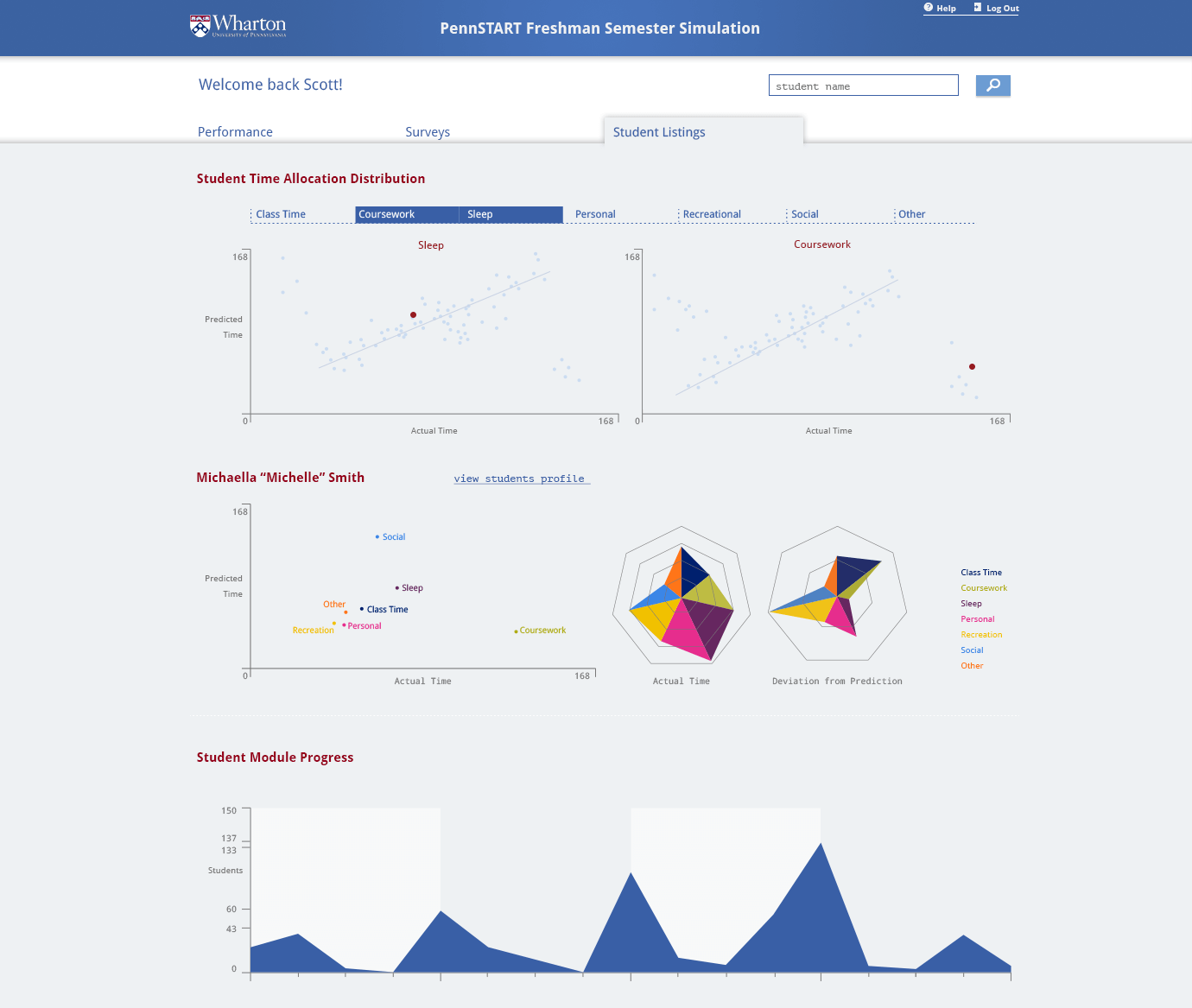
One of the important parts of the simulation is the feedback students get on their mood or status. Avatars inform the student about their health, stress level, & overall mental state. Though this is important for the student as they play the game, it is just as important for the advisors. If they see that a student was often stressed or sad, this could help them identify potential problems in the fall semester.
Today, the PennSTART simulation is an integral part of the freshman experience, it used by over 400 students each year. By using a fun, accessible, and educational simulation, both students and advisors are better prepared for freshman life at Wharton. In particular, students can experiment with typical college decisions — and their consequences — in a controlled environment. Additionally, students arrive on campus with a shared experience to draw upon during the project and team-based work that is integral to the undergraduate Wharton experience. Advisors can reach their incoming students in a new and engaging way, and in a more timely manner: before the students arrive on campus and are potentially overwhelmed by the transition from high school to college. Both students and advisors agree that the PennSTART simulation has improved the freshman experience.

Initial Main Play Screen Wireframes
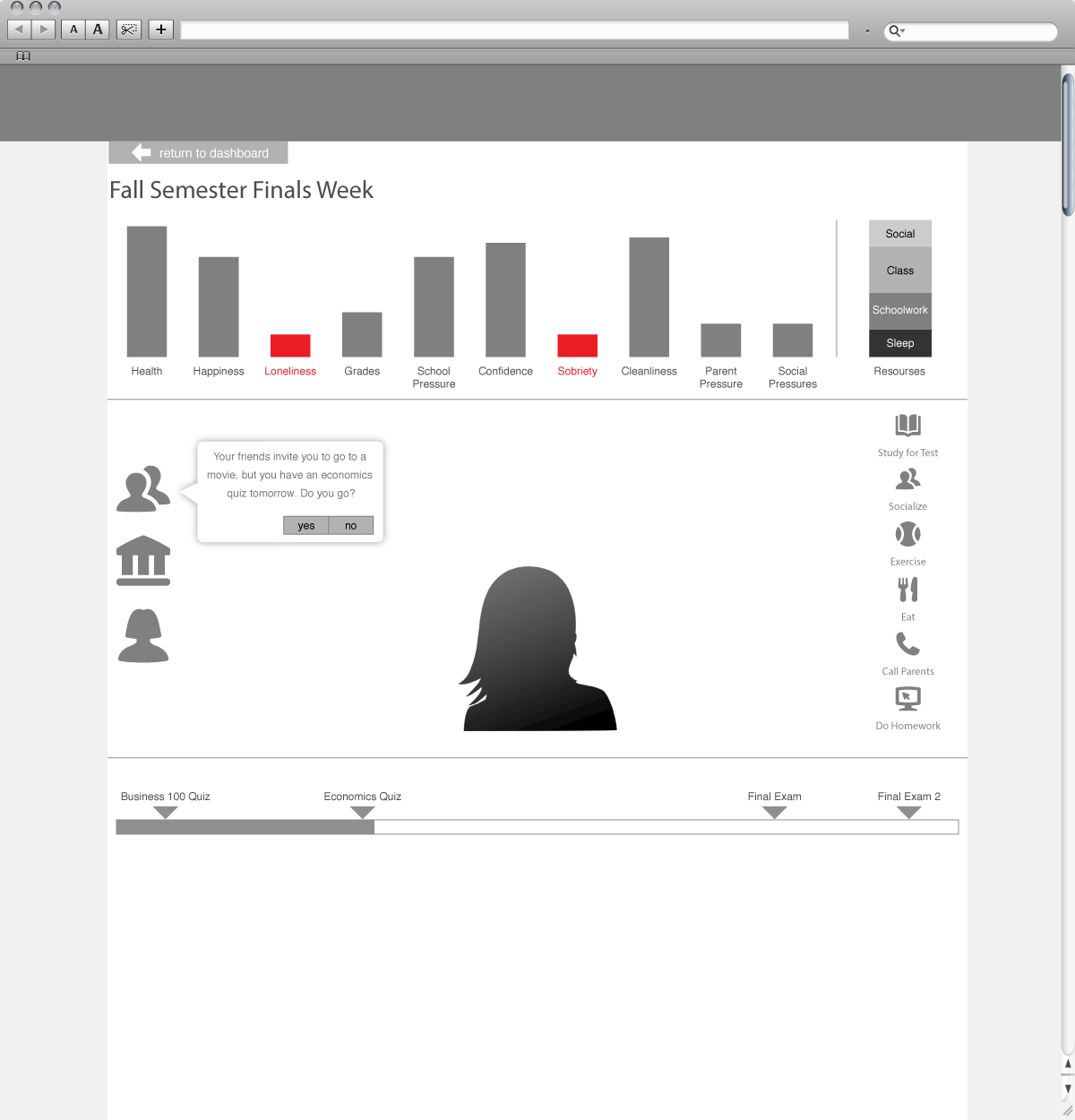
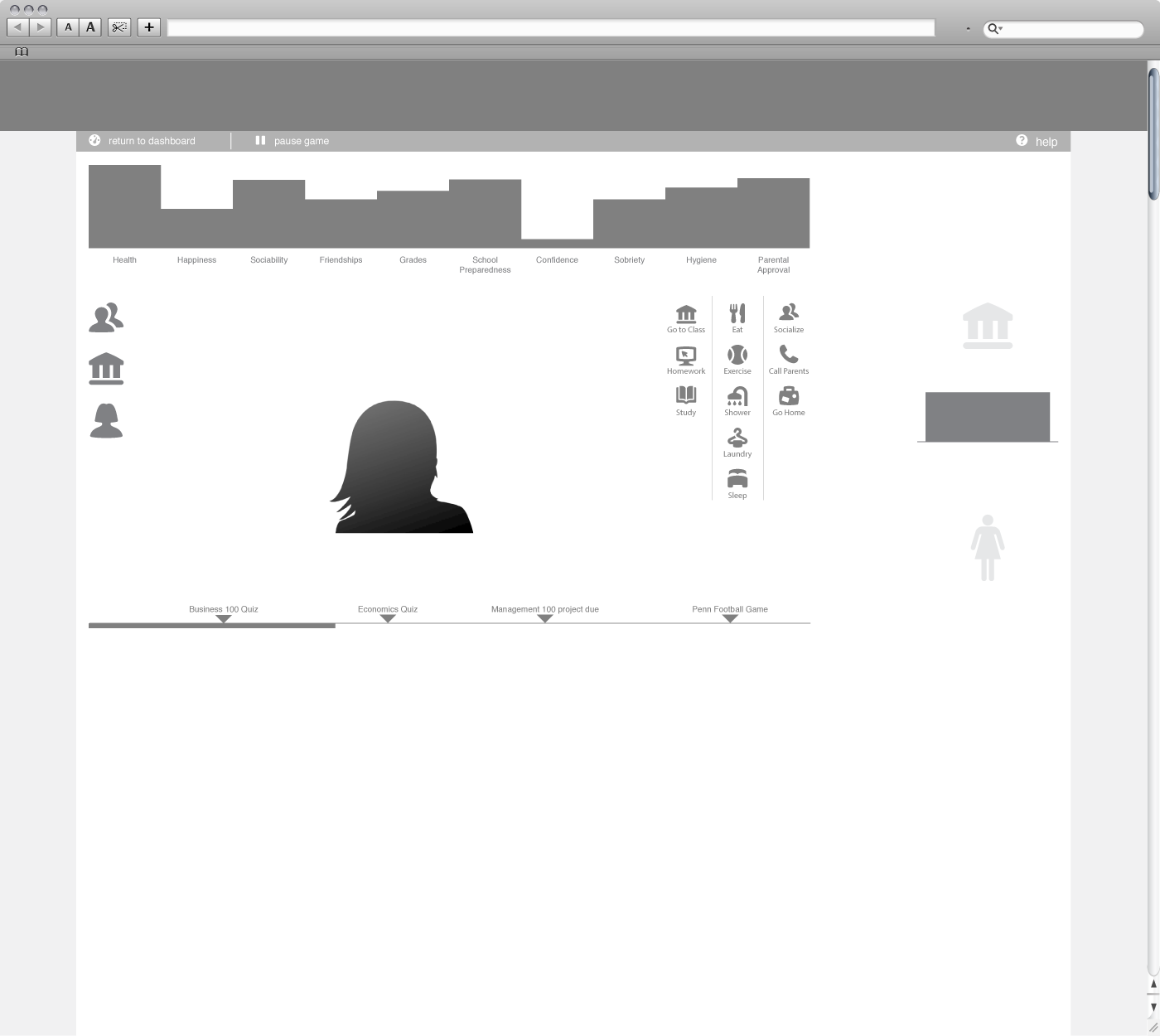
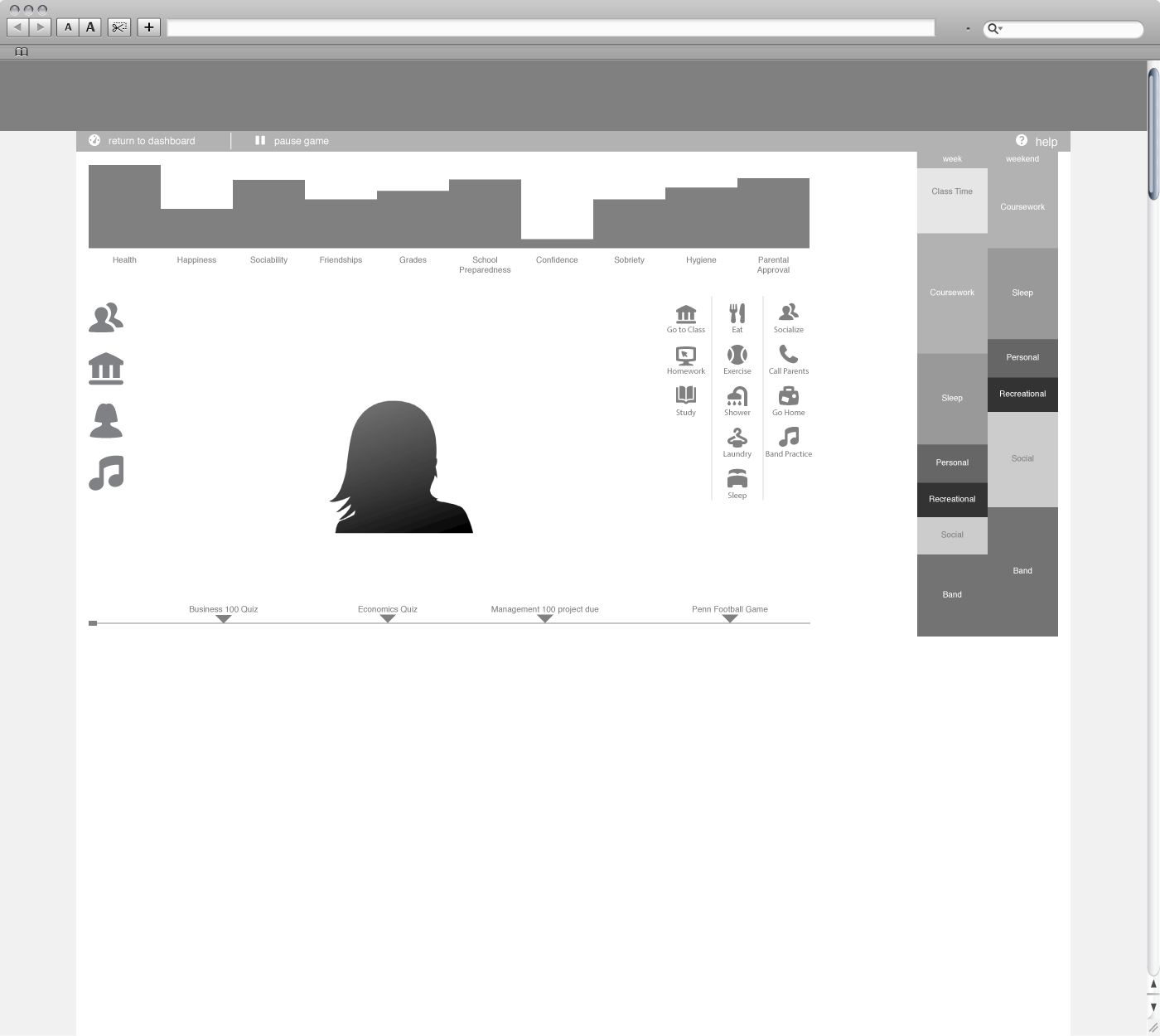
Player's Coaching
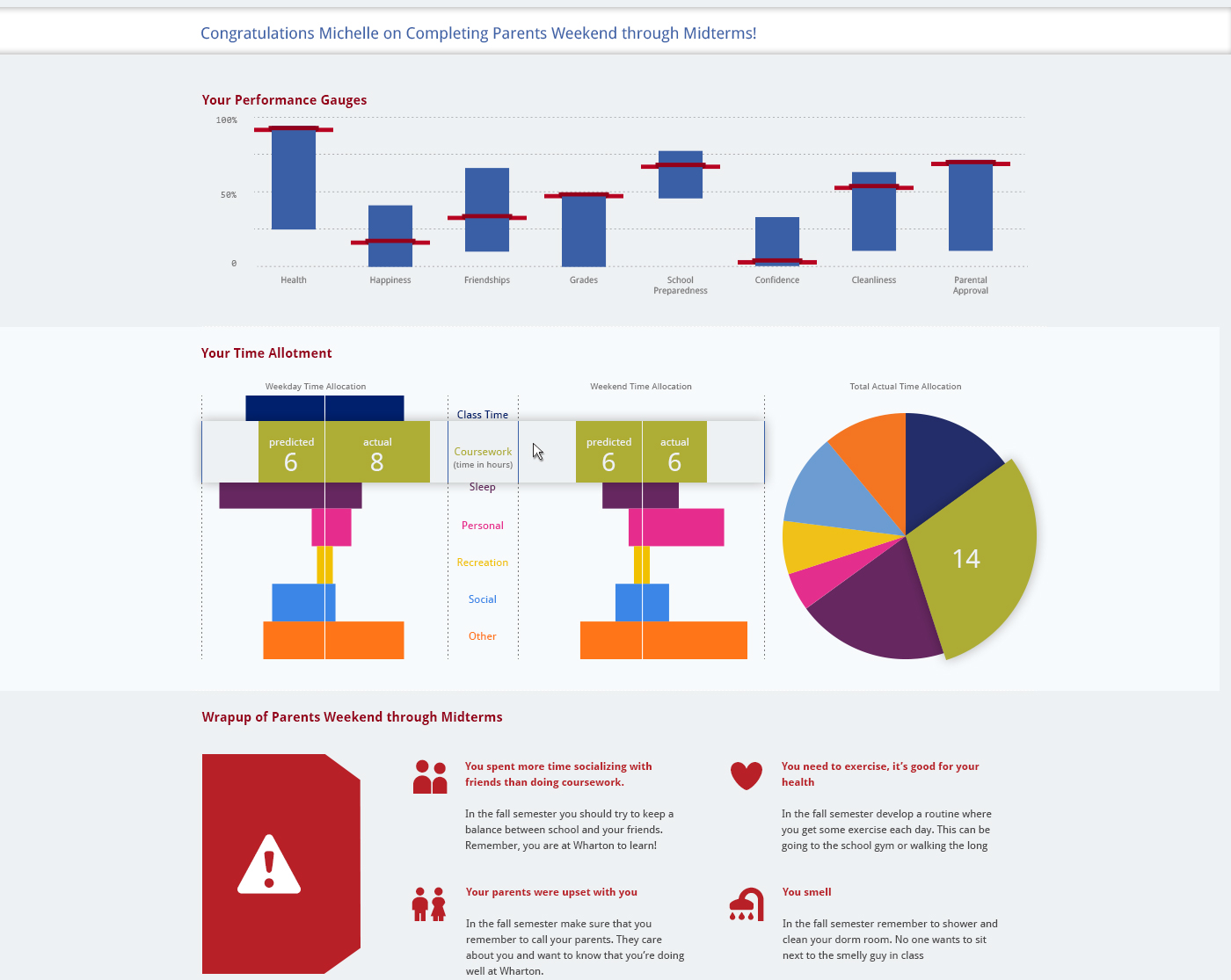
Player's End-of-Game Summary

Facilitator Dashboard

The Avatars

- Back to All Works
- Case Study: Faces App
- Case Study: Forio Epicenter
- Case Study: PennSTART
- Everest Simulation
- Alternative Fuel Vehicle Simulator
- Alternate Reality Teaching
- Texas Electricity-Water Nexus Simulator
- Investment Portfolio Simulation
- Latino Vote Map
- VenueConnect: Masters Thesis
- Compare-O-Marator
